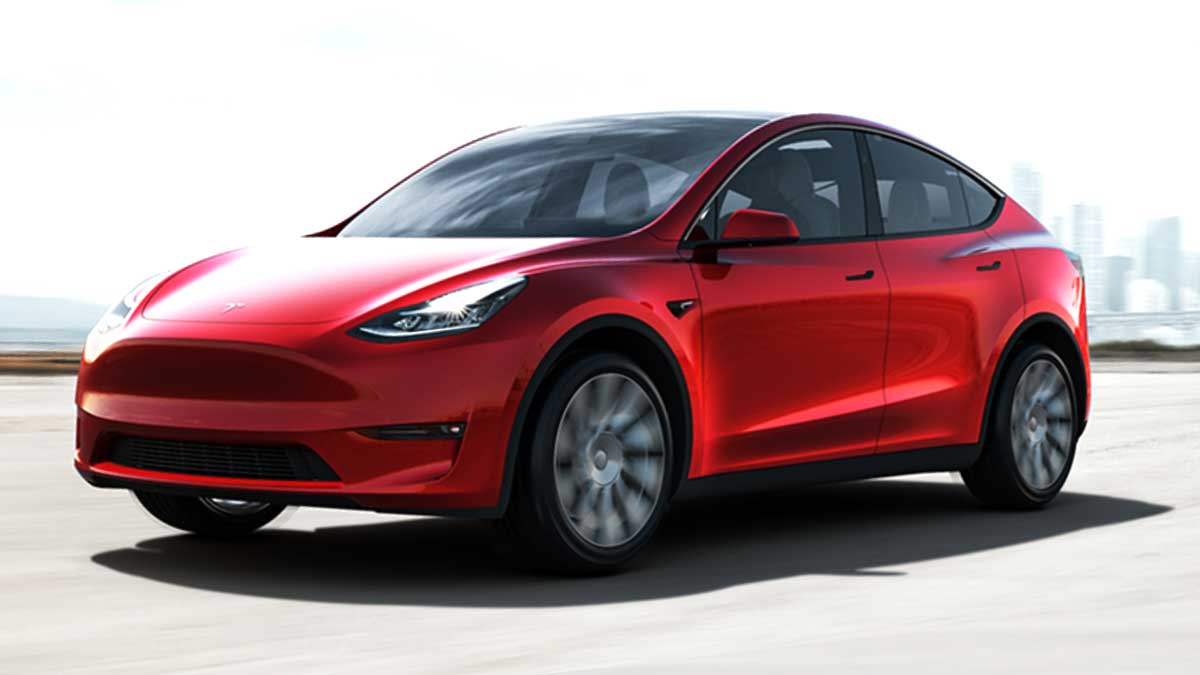- Home
- Billionaires
- Investing Newsletters
- 193CC 1000
- Article Layout 2
- Article Layout 3
- Article Layout 4
- Article Layout 5
- Article Layout 6
- Article Layout 7
- Article Layout 8
- Article Layout 9
- Article Layout 10
- Article Layout 11
- Article Layout 12
- Article Layout 13
- Article Layout 14
- Article Sidebar
- Post Format
- pages
- Archive Layouts
- Post Gallery
- Post Video Background
- Post Review
- Sponsored Post
- Leadership
- Business
- Money
- Small Business
- Innovation
- Shop
Recent Posts
Tesla Recalls 700,000 Vehicles Over Tire Pressure Issue

Tesla has announced its latest recall of nearly 700,000 vehicles in the United States, bringing the total number of cars affected by safety recalls in 2024 to over 2.7 million. This latest recall, which was issued on Friday, pertains to a problem with the tire pressure monitoring system (TPMS) in certain models of Tesla vehicles, including the 2024 Cybertruck, as well as Model 3 cars manufactured between 2017 and 2025 and Model Y vehicles from 2020 to 2025. According to a filing with the National Highway Traffic Safety Administration (NHTSA), the recall highlights concerns that the tire pressure warning system in these vehicles may fail to properly alert drivers when the tire pressure is too low.
The failure to provide an accurate warning about low tire pressure increases the risk of driving with improperly inflated tires, which could lead to tire blowouts and, in turn, heighten the risk of accidents and crashes. As tire pressure is a critical safety feature for ensuring optimal vehicle performance, Tesla’s recall serves as a preventative measure to address this potential safety hazard.
The recall marks the 15th for Tesla in 2024, as the company continues to face increased scrutiny and challenges related to vehicle safety. This ongoing wave of recalls comes at a time when the NHTSA is investigating several safety issues with Tesla’s vehicles, raising concerns about the company’s ability to maintain its reputation for producing safe electric vehicles.
This recall follows the largest recall issued by Tesla earlier this year, which took place in July and affected 1.8 million vehicles. The recall was prompted by the discovery that certain Model 3, Model S, Model X, and Model Y vehicles failed to detect when the hood was unlatched. This failure could cause the hood to fully open while driving, obstructing the driver’s view and increasing the likelihood of a collision.
Other recalls this year have addressed various safety-related issues, including problems with the seatbelt warning system, rearview cameras, front windshield wipers, and issues with trapped acceleration pedals. Despite the growing number of recalls, Tesla has been proactive in addressing many of these issues through over-the-air software updates, which have resolved many of the safety concerns without requiring owners to visit service centers.
The growing number of recalls and safety concerns has had a significant impact on Tesla’s stock performance. On Friday, Tesla shares experienced a sharp 6% drop in early trading, likely due to a larger market sell-off as investors took profits from the company’s post-election rally. However, shares quickly rebounded and were up by 1% as of 10:40 a.m. EST, indicating that investors remain confident in the long-term outlook for the electric vehicle maker.
Tesla has faced safety concerns for years, with several high-profile incidents contributing to its reputation in the automotive industry. In December 2023, U.S. auto safety regulators launched an investigation into Tesla’s Autopilot system after multiple crashes occurred following an update intended to improve the system’s safety. The investigation was triggered by reports of Tesla vehicles crashing into emergency vehicles while using the Autopilot system. Tesla has made updates to its Autopilot software to address the concerns, but the scrutiny remains.
In March 2024, a tragic incident raised additional questions about the safety of Tesla vehicles and their gearshifts. Angela Chao, the CEO of Foremost Group and sister-in-law to Senator Mitch McConnell, tragically passed away after her Tesla Model X SUV reversed over an embankment and into a stock pond. The inability to rescue her from the vehicle led to increased scrutiny of Tesla’s gearshift system, which has been criticized for being confusing and prone to incorrect shifting. Additionally, Tesla’s use of laminated glass windows, which are marketed as “unbreakable,” has been questioned following reports of difficulty in rescuing passengers in certain situations.
A recent report from auto research firm iSeeCars further highlighted Tesla’s safety challenges. The analysis examined fatal crashes involving 2018-2022 car models between 2017 and 2022. Tesla’s Model S and Model Y were found to be among the most dangerous cars on the road, with the vehicles involved in 5.6 fatal accidents per billion miles traveled. This rate is more than double the national average of 2.8 fatal accidents per billion miles. While Tesla’s vehicles are considered Top Safety Picks by the Insurance Institute for Highway Safety (IIHS), the findings of this report have raised concerns about the company’s overall safety record.
Despite the controversies and safety challenges, Tesla CEO Elon Musk remains adamant that Teslas are among the safest cars on the road. In a statement on X (formerly Twitter) last year, Musk wrote, “Teslas are the safest cars on the road, but most people don’t know that.” He has defended the company’s vehicles and their safety features, emphasizing the extensive testing and data that Tesla uses to enhance the safety of its cars.
Interestingly, while Tesla has faced multiple recalls, it is not the automaker with the highest number of recalls this year. According to NHTSA data, Chrysler has issued 67 recalls so far in 2024, the highest number among all auto manufacturers. Chrysler, which ranks as the 11th largest vehicle manufacturer in the world, has faced significant challenges with safety recalls. Tesla, with a 4.2% market share in 2023, does not rank among the top 12 automakers in terms of recalls issued this year, despite the company’s prominence in the electric vehicle sector.
As Tesla continues to navigate its recalls and safety challenges, the company remains at the forefront of the electric vehicle industry, with a growing customer base and continued innovation in vehicle technology. However, as the number of recalls in 2024 continues to rise, Tesla’s commitment to addressing safety concerns will be closely scrutinized by both regulators and consumers alike.
While the company’s stock remains volatile and its safety track record is being questioned, Tesla’s continued development of electric vehicles and autonomous driving technologies will shape the future of the automotive industry. Whether Tesla can maintain its status as an industry leader while addressing these ongoing safety concerns will be crucial in determining its long-term success.
Recent Posts
Categories
- 193 Countries Consortium Partner1
- 193cc Digital Assets2
- 5G1
- Aerospace & Defense48
- AI37
- Arts3
- Banking & Insurance11
- Big Data3
- Billionaires1,467
- Boats & Planes1
- Business332
- Careers13
- Cars & Bikes79
- CEO Network1
- CFO Network17
- CHRO Network1
- CIO Network1
- Cloud10
- CMO Network18
- Commercial Real Estate7
- Consultant1
- Consumer Tech194
- CxO1
- Cybersecurity73
- Dining1
- Diversity, Equity & Inclusion4
- Education7
- Energy8
- Enterprise Tech29
- Events11
- Fintech1
- Food & Drink2
- Franchises1
- Freelance1
- Future Of Work2
- Games149
- GIG1
- Healthcare79
- Hollywood & Entertainment203
- Houses1
- India’s 1000 Richest1
- Innovation46
- Investing2
- Investing Newsletters4
- Leadership65
- Lifestyle11
- Manufacturing1
- Markets20
- Media327
- Mobile phone1
- Money13
- Personal Finance2
- Policy569
- Real Estate1
- Research6
- Retail1
- Retirement1
- Small Business1
- SportsMoney42
- Style & Beauty1
- Success Income1
- Taxes2
- Travel10
- Uncategorized14
- Vices1
- Watches & Jewelry2
- world's billionaires1,436
- Worlds Richest Self-Made Women2
Related Articles
HBO and Cablevision Founder Charles Dolan Dies at 98
Charles Dolan, the visionary founder of HBO and Cablevision, passed away at...
By 193cc Agency CouncilDecember 30, 2024Bitcoin Reaches $100K, But Altcoins Outperform in 2024
Bitcoin’s performance in 2024 was nothing short of historic, as it crossed...
By 193cc Agency CouncilDecember 28, 2024Apple Unveils Limited-Edition Year of the Snake AirTag in Japan
In an announcement that will likely leave Apple enthusiasts excited but also...
By 193cc Agency CouncilDecember 27, 2024Mega Millions Jackpot Hits $1.15B; Winner Faces Major Taxes
The Mega Millions jackpot has soared to an estimated $1.15 billion, following...
By 193cc Agency CouncilDecember 26, 2024















Leave a comment